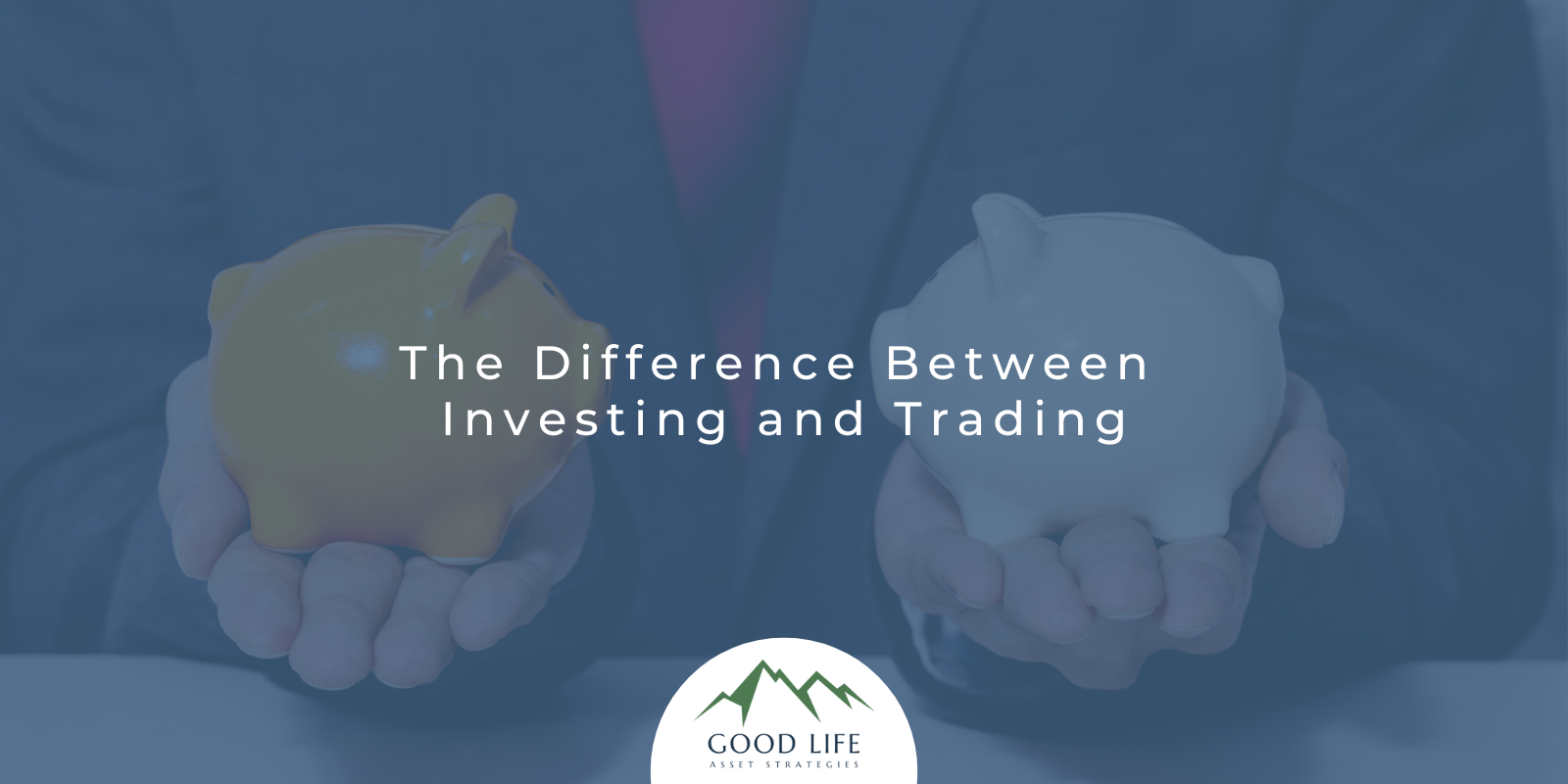- 817-864-8560
- justin@g-las.com
- Mon - Fri: 9:00am - 5:00pm

If you want to become a sophisticated investor (or at least sound like one), you need to learn the language. It’s the lingo that matters, and you need to know and understand the basic language investment advisors and professional traders speak. Learning the language will not only help you at dinner parties or around the water cooler, but it will also hopefully help you think more like an astute investor. For the next few months, we will introduce the most important terms and their importance to your investing, and along the way, we’ll throw in some words and phrases you’ll want to avoid, especially in front of seasoned professionals.
Let’s start with the basics of distinguishing between investing and trading.
You may hear the words “investing” and “trading” used interchangeably, but in the investing world, they are distinct. The difference is the timeline.
Investing involves hanging onto an asset for a long time—at least a year, if not years or decades (e.g., your house or the gold coins in your safety deposit box).
Trading, on the other hand, means buying and selling an asset in a shorter time span—as short as a minute, and up to a few weeks or months. You’re just trying to make a quick buck and move on.
Think of investing more like a marriage, and trading more like a dinner date. Then it should go without saying that investors and traders go with investing and trading.
The one-year mark is typically the line in the sand between calling something an investment or a trade, along with the timeframe the IRS uses between short- and long-term capital gains. But that’s not etched in stone.
You’ve probably heard the term “day trade.” It’s simply a trade entered and exited within 24 hours. It’s been around a long time but became a phenomenon during the Pandemic when people were stuck at home, bored out of their minds, and with no sports to wager on, they started betting on stocks. Fun fun. Studies show that over 90 % of day traders lose money, so it’s important you always roll your eyes if anyone mentions the word, and never, ever, under any circumstances admit you have day traded, especially in your social circles. You may as well show them the unidentified sore on your lip, or tell them you drive a Prius.
Investing and trading both come with their own potential benefits and risks. Your individual circumstances and goals will determine whether you make an investment or a trade.
You may believe a parcel of land is going to be worth a lot of money in the future, and so you make a long-term investment, with eyes on the long-haul prize. On the other hand, maybe a stock you follow has crashed over the past couple of months for some silly reason, and you believe the price is suddenly way undervalued and poised to move back to its old price any day now. So, you make a short-term trade looking for a quick buck.
There are no laws against you utilizing both. Just make sure, before you allocate your hard-earned dollars, you understand whether you are investing or trading. Also, make sure it is appropriate for your financial goals and risk tolerances.
Note that in the financial world, these words will be used interchangeably as if they’re the same. It’s a lot easier to just say investor or trader without getting nit-picky. So be nice and play along when someone doesn’t distinguish between the two when making their boring comment. In fact, for simplicity’s sake, we use one or the other, but know what we mean.
Of course, there’s more to know about investing and trading, but this is a good start. If you want to know more about all things financial, or aren’t happy with your portfolio and would like some help or at least an unbiased opinion, feel free to reach out for a free, no-obligation financial and portfolio review.
The views expressed represent the opinion of Good Life Asset Strategies, LLC. The views are subject to change and are not intended as a forecast or guarantee of future results. This material is for informational purposes only. It does not constitute investment advice and is not intended as an endorsement of any specific investment. Stated information is derived from proprietary and nonproprietary sources that have not been independently verified for accuracy or completeness.